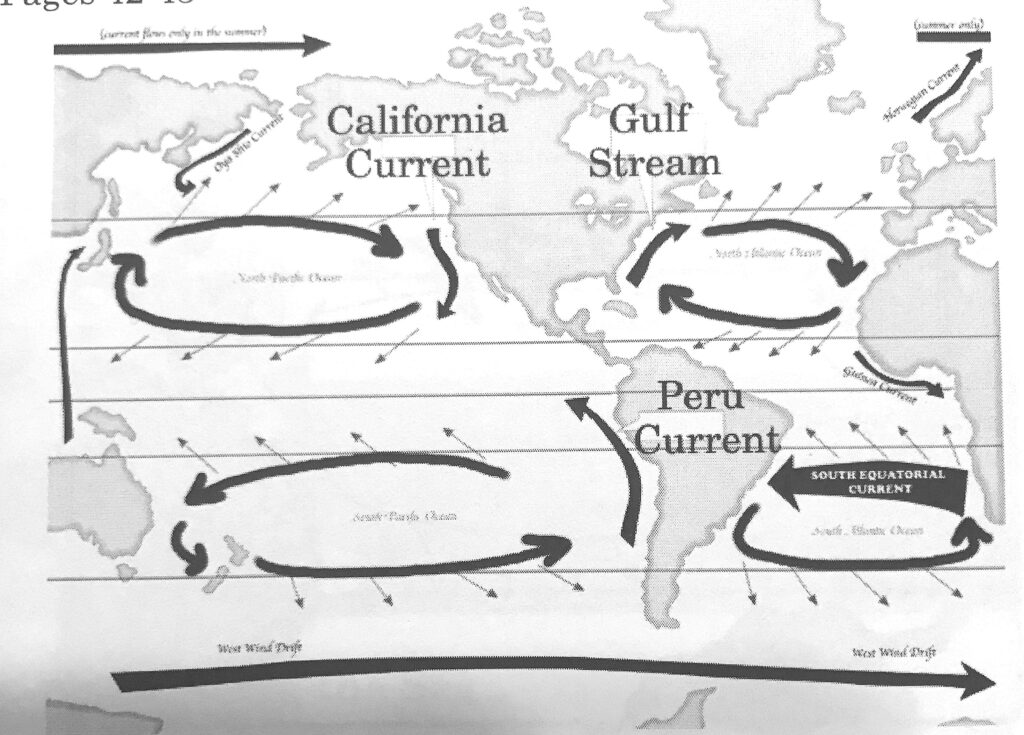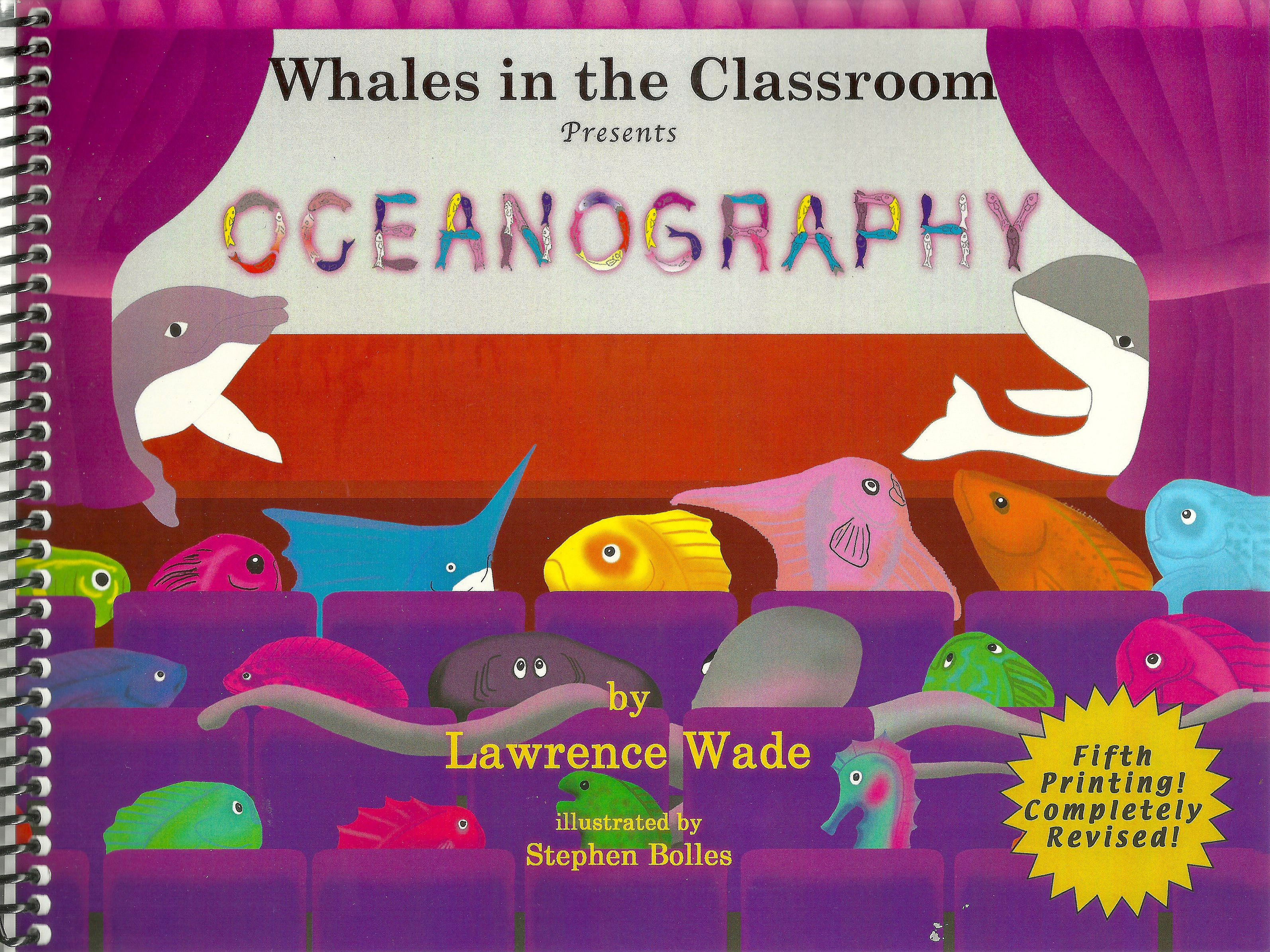Oceanography 4 – Rivers in the Sea
Ocean Currents, Prevailing Winds, and the Coriolis Effect
From: Whales in the Classroom – Oceanography
By Lawrence Wade
Graphics by Stephen Bolles
The ocean currents of the world play a very important role in our ocean system. The currents move throughout the oceans like the blood that moves through a body. They are “rivers in the sea” and they circulate ocean water throughout the world. Although the oceans are surrounded by continents and have been given special names (Pacific Ocean, Atlantic Ocean, Indian Ocean, etc), the water is actually mixed by currents into one huge planetary ocean. In fact, if you could follow a drop of ocean water, you would find that it would travel from one end of the Earth to the other.
There are two great forces that create our ocean currents. The prevailing winds cause the water to move. Just as the currents are the blood of the ocean, the prevailing winds are the breath of the ocean. The prevailing winds blow continually and set the water in motion.
The second great force that creates our currents is the Coriolis Effect and it is caused by the rotation of the Earth. If you were a drop of water north of the Equator, you would move throughout that ocean in a clockwise direction. If you were a drop of water south of the equator, you would move in a counter-clockwise direction. This force give currents their direction of flow.
Coriolis Effect
The prevailing winds generates the ocean currents. However, the Coriolis Effect causes the currents to be deflected 45° from the direction of the prevailing wind.
What to do:
Download page 40 (map below), then draw the accurate direction of the ocean current from the wind arrows. The green arrow is an example of the direction the ocean currents take in relation to the wind in the Northern Hemisphere and another in the Southern Hemisphere.
Download page 40
Use the key at the end of the post to determine how well you did on page 40.
Ocean Currents, Continents and the Coriolis Effect
When a current comes in contact with a continent, the water builds up and must either flow north or south. The direction the water takes depends upon the Coriolis Effect. As you know, in the Northern Hemisphere the currents moves clockwise and in the Southern Hemisphere it move counterclockwise.
What to do:
Download page 41. Now complete the flow of the North Atlantic current system by drawing an arrow to show the direction the current flows after it comes in contact with Europe and North America.
Download page 41
Use the key at the end of the post to determine how well you did on page 41.
The Big Challenge
Now are you ready for the “big challenge”? You will be plotting the ocean currents in the Northern and Southern Hemispheres of both the Atlantic and Pacific Oceans
Buenos suerte ( good luck)!
What to Do:
Download pages 42-43. Apply what you have learned in the previous exercises and complete diagram below. The South Equatorial current in the Southern Pacific Ocean is completed for you.
In addition to plotting the currents, label three “Current Superstars”.
1. Gulf Stream – is in the North Atlantic Ocean and flow NE along the coast of North America. The Gulf Stream flows as fast as 10 miles/hour.
2. California Current is in the North Pacific Ocean and flows south along the West Coast of North America. The current creates an environment rich with sealife.
3. Peru Current – is in the South Pacific and flows north along the west coast of South America. It is one of the richest areas in the world for sealife and fishing.

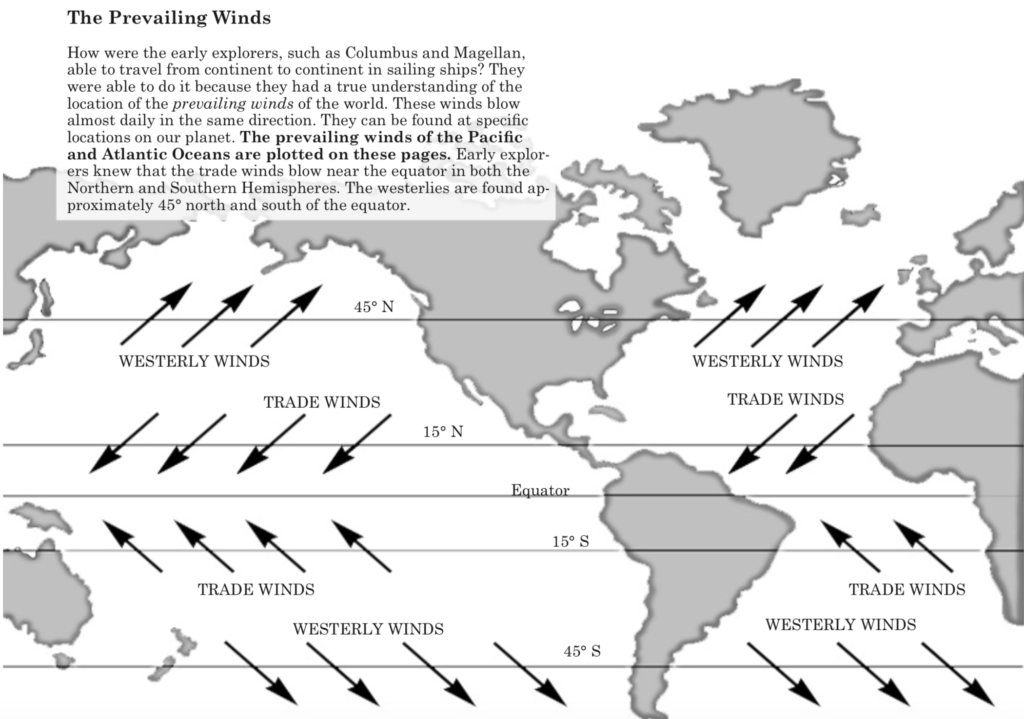
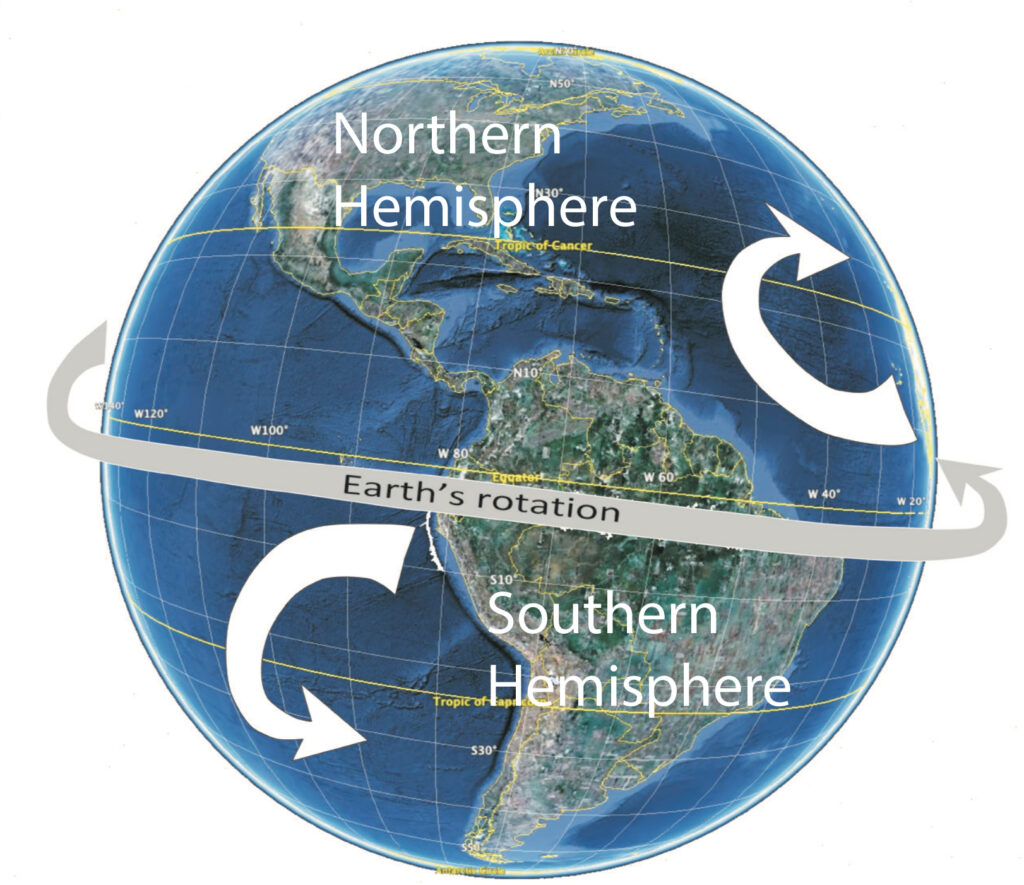
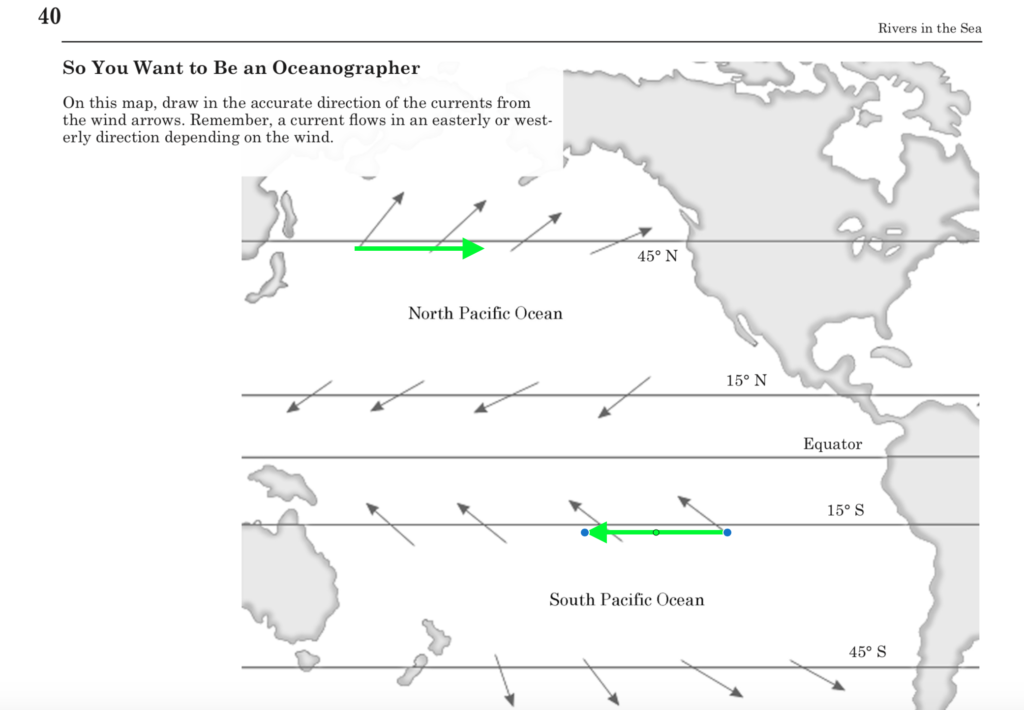
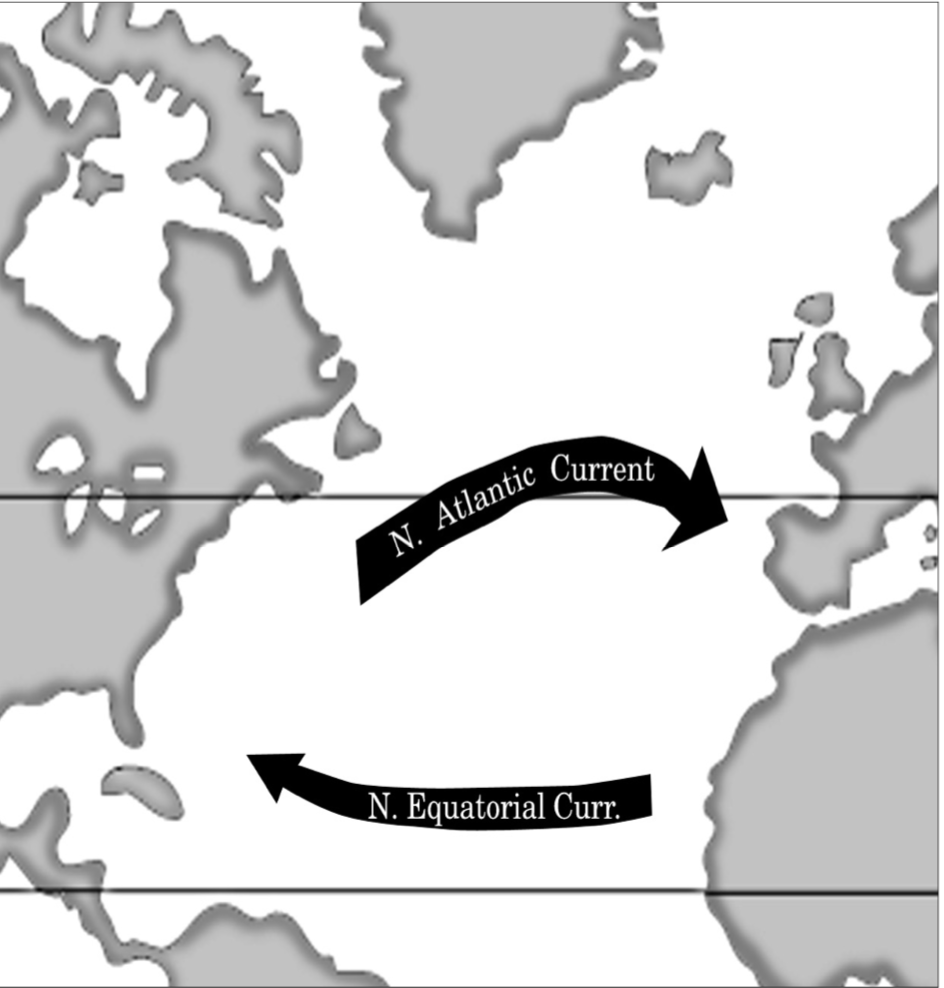
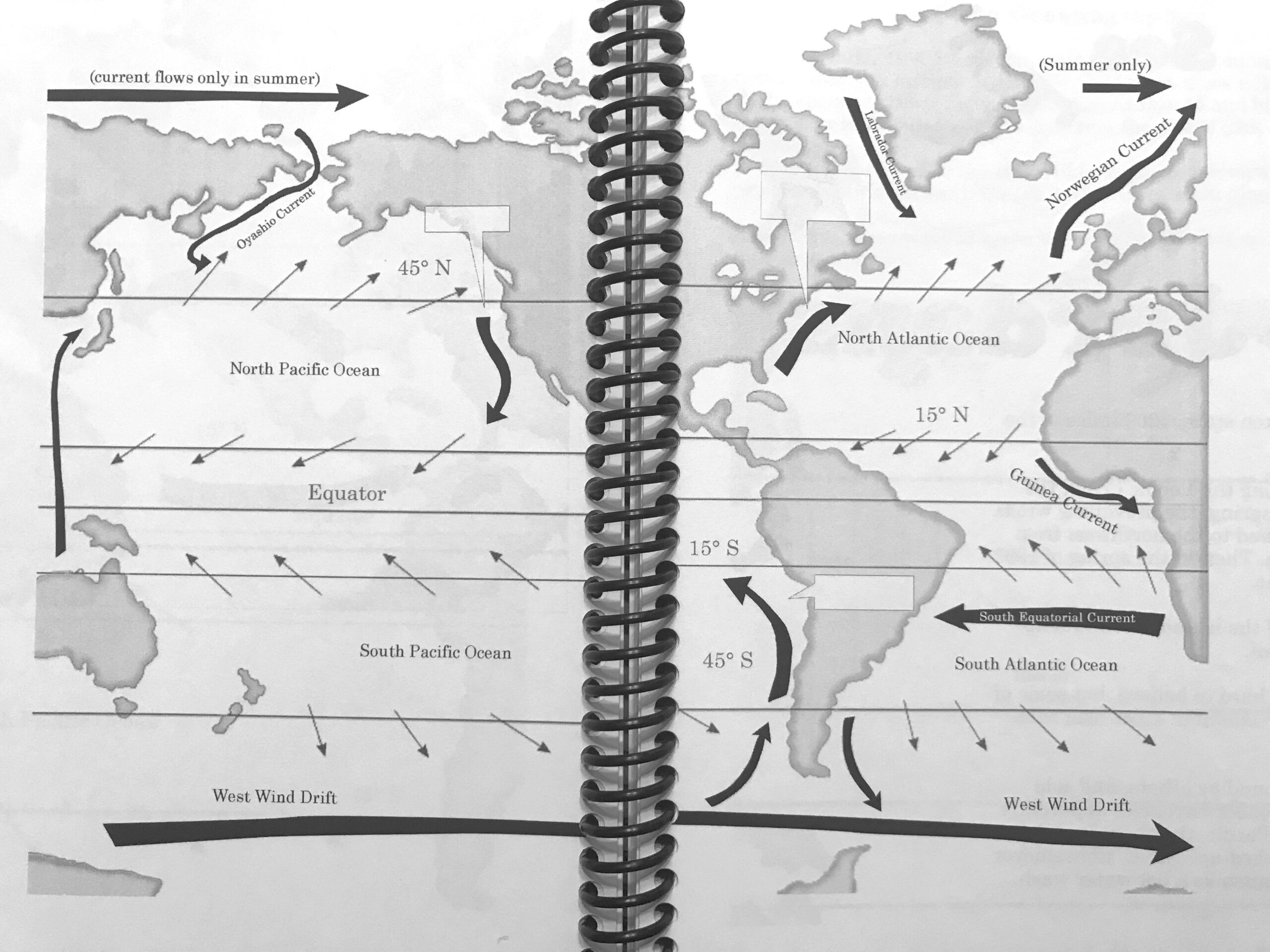
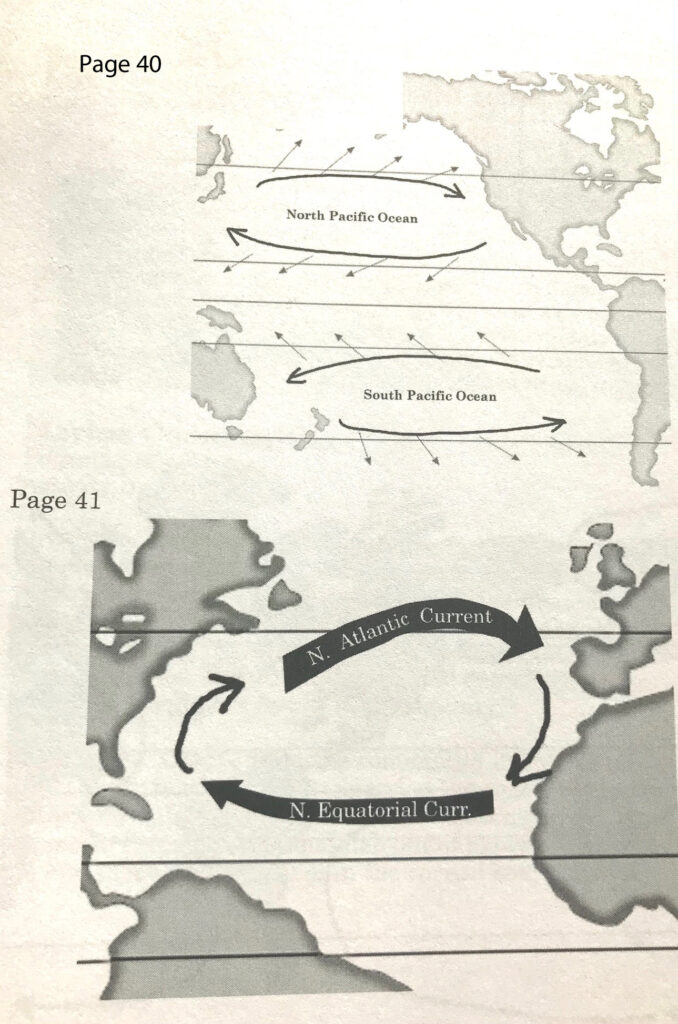 Page 42-43
Page 42-43